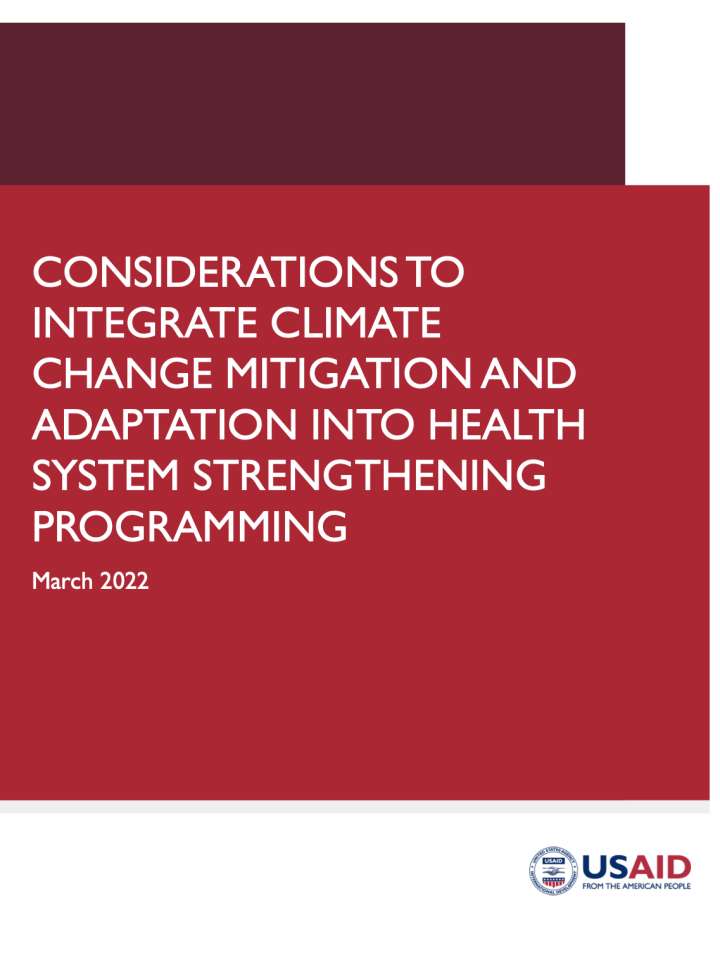Considerations to integrate climate change mitigation and adaptation into health system programming
Addressing gaps and improving health system performance is simply not enough to prepare a health system to tackle the effects of the climate crisis. Climate change’s impact on the health and well-being of people globally is reaching catastrophic levels. As the earth continues to warm, tens of millions of people are at increased risk from rapid and unpredictable spread of infectious diseases, heatwaves, water and food insecurity and scarcity, air pollution, poverty and homelessness. Health services are often regarded as a first line defense in preventing adverse health outcomes, especially from those caused by climate impacts. Health systems are the foundation for individual and community level resilience. They serve as a critical structure for protecting all global citizens by providing accessible, affordable, accountable and reliable care when climate hazards strike. It is possible to prepare for climate change now by building climate resilient health systems. This includes key actions that should be part of any cross-cutting HSS approach such as promoting and capacitating effective and iterative risk management across all levels, fostering multi-sectoral engagement, and identifying actions and investments over the short- and long- term to increase system resilience.
Observed climate impacts on health can be categorized in the following ways:
- Direct impacts from increased frequency and severity of extreme weather events, including heat, that can lead to physical injuries, death and mental health challenges.
- Ecosystem mediated impacts, such as through air pollution, shifting temperature or precipitation patterns that can alter prevalence and distribution of vector-, water- or food- borne diseases and/or impact health outcomes related to nutrition.
- Socially mediated effects that occur via impacts on social and human systems, like increased poverty, migration or conflict which can impact the ability to access care or negatively influence care seeking behavior.
Explore further
